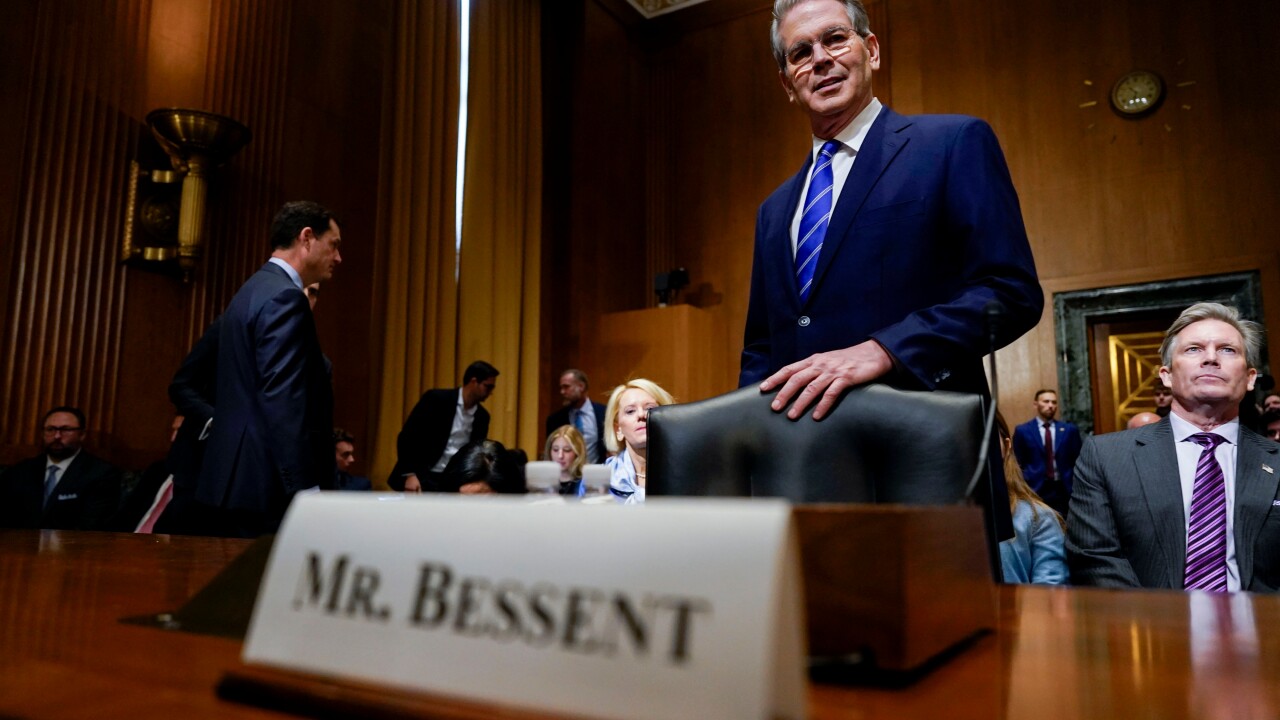
WASHINGTON — The U.S. is expected to receive bad marks over its supervision of certain high-risk nonfinancial institutions, like lawyers, casinos and real estate agents, for potential anti-money-laundering problems in an upcoming evaluation by the Financial Action Task Force.
The fourth FATF report on the U.S. is slated to come out next month, and is likely to ascribe a less-than "substantial" ranking of the effectiveness of the country's overall supervision scheme, largely because of how the government deals with these nonfinancial actors, sources familiar with the process said.
FATF, an international body that conducts periodic evaluations of countries' anti-money-laundering regime and enforcement, has long considered that businesses outside of financial services could serve as intermediaries to illegal transactions.
"FATF's position is that" such nonfinancial businesses "are the 'gatekeepers' who provide their clients with access to the financial system through accounts maintained" by them, said David B. Chenkin, a partner at Zeichner Ellman & Krause.
In the U.S., many of these businesses – including lawyers, accountants and companies that open accounts and perform other administrative services for third parties – do not have to comply with Bank Secrecy Act and other AML requirements.
"There's no reporting requirements for the legal profession," said James F. Dowling, an anti-money-laundering consultant, because lawyers here have long argued this could impact attorney-client privilege.
Financial institutions themselves are careful when taking in these businesses as customers, he added.
"Bankers have traditionally viewed lawyers as high risk just because of the industry that they're in and have done enhanced due diligence on them as part of normal procedures," Dowling said.
Others, such as casinos, dealers in stones and precious metals and real estate agents, are less closely scrutinized than their financial peers, advocates for stricter AML laws contend.
"The U.S. has been a laggard when it comes to [regulating non-financial businesses] for years," said Ross Delston, an attorney who specializes in anti-money-laundering laws.
In its last report on the U.S. published in 2006, FATF had called out some of these same failings in the country's regulatory regime.
"There is no regulatory oversight for [anti-money-laundering and combating the financing of terrorism] compliance for accountants, lawyers, real estate agents or [trust and company services providers]," the FATF report noted then.
But the U.S. was still able to skate by with an good overall grade, because of its strong enforcement arm.
"The U.S. in the past prided itself that whatever gaps there were in its AML/CFT framework, those gaps were remedied by strong law enforcement mechanisms," Delston said.
Since then, however, FATF has changed how it rates countries and separated effectiveness and supervision – how regulators examine companies on an ongoing basis – in its evaluations.
The lack of AML supervision among nonfinancial institutions was brought to the fore this year by reports on the Panama Papers, a leak of millions of documents that shed light on the flow of secret funds to offshore bank accounts.
"Law firms and trust and company service providers were setting up companies and trusts for clients without following the AML requirements for customer due diligence and filing [suspicious activity reports]," Delston said. "That was in Panama. Neither of those things were required in the U.S."





